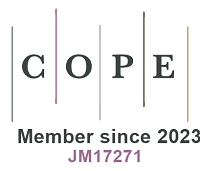
Water and Health Laboratory, Cyprus International Institute for Environmental and Public Health, School of Health Sciences, Cyprus University of Technology, Limassol, Cyprus.
HomePage
Bio
Dr. Konstantinos C. Makris has held an appointment as an adjunct assistant professor of environmental health at the Dept. of Environmental Health, Harvard University, USA (2009-2015). Dr. Makris leads the exposome-based water and health lab which aims to minimize the human health risk associated with chronic exposure to environmental stressors. Toward this goal, his team applies improved population health protocols, by conducting human studies in Cyprus, Greece, France, Kuwait, the Netherlands, and Norway. His laboratory is equipped with state-of-the-art instrumentation valued at >0.5M euros to generate its biomarker and metabolomics data. Since 2010, Prof. Makris has received > 1.5 million euros in external funding from the EU, the Cyprus RPF, the EU BBMRI-LPC Biobanking network, and the National Institutes of Environmental Health Sciences Center at Harvard University. He has produced over >110 peer-reviewed journal articles and >70 conference proceedings. He was one of the two investigators that conducted the cancer cluster investigation for the Astrasol brain cancer court case in Cyprus. Prof. Makris was invited by the Cyprus Parliament Senate Committee on Environment and Health to provide expert testimony about the environmental health consequences for the surrounding populations after the Mari tragedy/explosion and has also served as a member of the scientific advisory committee to the Ministry of Health concerning arsenic exposures in Cyprus. Prof. Makris has been invited by >20 universities and organizations in the USA/EU to deliver research talks, such as at Harvard University, Emory University, University of Alberta, University of Delaware, etc. and he has presided over>15 symposia in international conferences.
Research Interests
Human exposome, Environmental health, Non-pharmacological trials, Metabolomics
Contributions:








